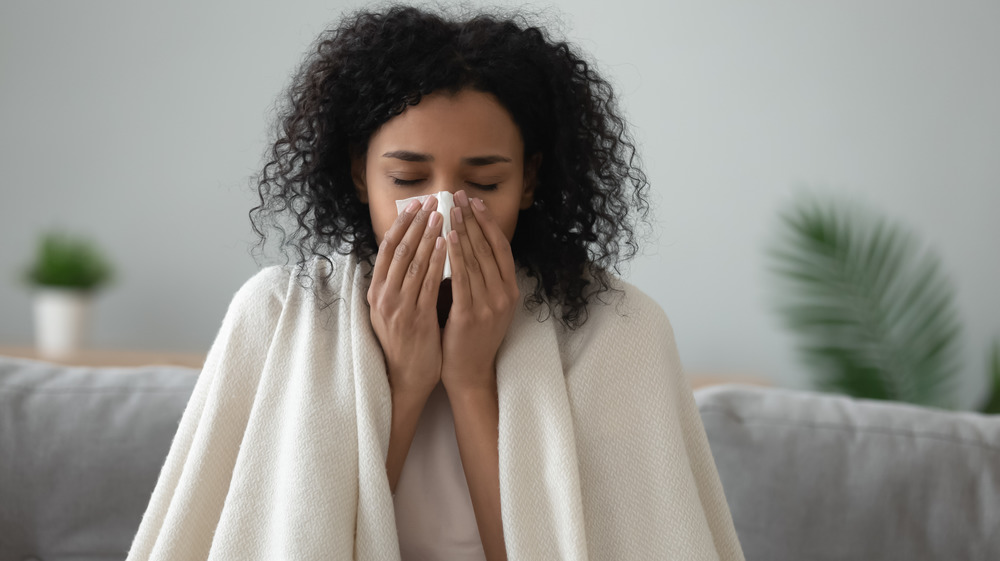When You Have Too Much Zinc, This Is What Happens
On top of a global pandemic, it's also cold and flu season. You may have heard that taking zinc can help shorten the duration of the common cold. But how much zinc is too much?
Zinc is a naturally occurring mineral that can be found in meats and whole-grain foods. Some foods are even fortified to contain higher levels of zinc. Your body needs zinc to grow, heal, smell, taste, and even protect itself from diseases. Most people get enough just by eating a balanced diet. Others choose to supplement with multivitamins or zinc lozenges marketed as cold treatments (via Healthline).
Overexposure to zinc, also called zinc poisoning, can be chronic or acute. Chronic zinc poisoning happens over a long period of exposure and is usually caused by something in the environment or by taking too many dietary supplements (via StatPearls). Doctors recommend that adults take no more than 15 mg of zinc per day. People usually do not show signs of zinc poisoning until they are exposed to 1000 times that level.
Dangerous signs to watch for
Zinc is most commonly ingested, but can also be inhaled or even absorbed through your skin. Welders are particularly vulnerable to zinc inhalation, and people who use denture cream are at risk of absorbing too much zinc into their systems.
Signs of zinc poisoning most often show up as gastrointestinal issues. Pain, nausea, vomiting, and diarrhea are all indicators of too much zinc. Over longer periods of time, zinc exposure can cause symptoms that may mimic the flu. If you notice a change in your ability to taste, you may be suffering from overexposure to zinc.
High levels of zinc in your body may even cause damage to your immune system and changes in the amount of good cholesterol your body produces. And an extreme but unlikely outcome of zinc poisoning is death. If you think you may have zinc poisoning, it's important to consult a medical professional. By staying within the daily recommended dosage of zinc, you can help avoid these harmful health outcomes.


